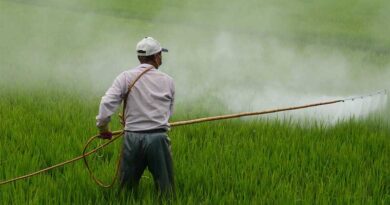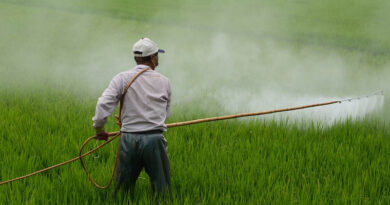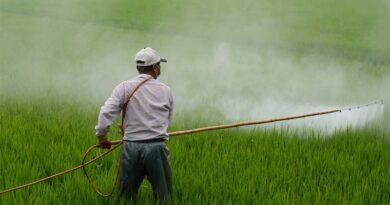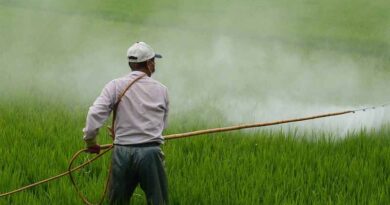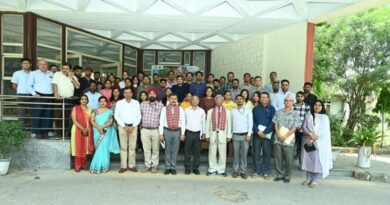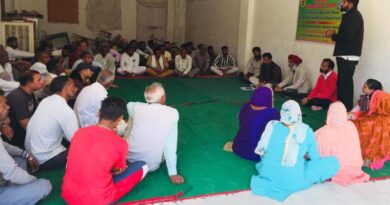Supreme Court challenges government on pesticides ban, says “You keep appointing committees till you get a favorable decision.”
26 July 2023, New Delhi: On Tuesday, the Supreme Court expressed worry about the Union Government’s repeated creation of expert committees to evaluate the prohibition of pesticides in a petition calling for the eradication of dangerous chemicals and pesticides used in the nation. The initial expert group had previously recommended that 27 pesticides be banned nationwide, therefore the court questioned the need for appointing further panels.
The bench with Chief Justice of India DY Chandrachud, Justice JB Pardiwala, and Justice Manoj Misra, stated that it appeared as though the Union Government continued to appoint committees till they were successful in getting a favorable ruling.
The issue is related to the report of Dr. Anupam Varma Committee that was submitted in December 2015, whose conclusions categorically suggested a ban on 13 pesticides out of a total of 66 under consideration. The pesticide industry associations, meanwhile, voiced concerns over the committee’s proposals. In response, the Dr. SK Malhotra Committee was constituted by the government in 2017 to evaluate the status of 27 pesticides.
The committee then reaffirmed the necessity of keeping the ban on those 27 chemicals in place throughout 2018. The Pesticide Registration Committee (RC), which acts as the top authority regulating pesticides in India, eventually established another subcommittee. The same 27 pesticides were to be examined by this recently established committee, which was chaired by Dr. SK Khurana. In May 2020, the Ministry of Agriculture and Farmers’ Welfare (MoFAW) proposed to ban several pesticides based on Khurana’s observations.
The Central government was represented at the court by Additional Solicitor General (ASG) Vikramjit Banerjee, who justified the government’s actions by claiming that they were the result of a methodical process based on scientific advice. Vikramjit Banerjee said, “We have a process. We trust the science. We act in terms of science. Committee banned 3 and then asked for objections. We entertained those also…The draft proposal is merely a draft and has not been finalized. Objections, suggestions by the stakeholders were reviewed.” (LiveLaw)
The petitioner’s attorney, Prashant Bhushan, refuted Vikramjit Banerjee’s claims by pointing out that the same 27 pesticides had been recommended for ban by both the Khurana committee that followed the Anupam Varma committee. However, the Rajendran committee, a new group, was chosen, and it later issued different recommendations. Bhushan questioned why the government needed to continue creating new panels when the first two committees had already recommended a ban. He stated: “Every part of Section 27 is satisfied. Where is the question of forming another expert Committee?” (LiveLaw)
CJI DY Chandrachud also questioned the government’s strategy at this point, wondering why it was essential to create a new committee in light of Khurana’s advice. He enquired as to the rationale for the Rajendran committee’s different position and the causes of the shift in opinion. He queried: “Why do you have to make so many committees? Once Khurana recommended the ban of 27, why make another? What was the basis of Khurana committee recommending ban on 27? And then why did Rajendran committee say 3? Show us what led the Rajendran committee to take a different view than Khurana committee?…It seems that every time you have an adverse report from one committee you form a new committee. You keep appointing committees till you get a favourable decision.”
Vikramjit Banerjee asked for more time to produce a thorough memorandum about the situation in answer to the court’s inquiries. In order to give the government time to deliver its arguments, the Chief Justice consented to take up the issue once more on the following Tuesday (August 1).
By banning 99 harmful pesticides that are used in India but have been banned by other countries and at least another six that are used in India but have been withdrawn or restricted by other countries, the petition submitted through advocate Prashant Bhushan seeks to enforce the right to health of farmers, farm workers, and consumers. In particular, Punjab, Kerala, and Maharashtra are mentioned as places where pesticide use has produced serious environmental and health hazards.
The argument refers to studies connecting farmers’ usage of pesticides with their propensity for suicide. Some of the health risks linked to the use of pesticides include cancer, DNA damage, brain and nervous system damage, Parkinson’s disease, birth defects, immunological changes, and negative effects on the physical and mental development of children in farmers, farm workers, and their families.
Later, a request was made asking the Centre to investigate 85 pesticides in addition to the 99 pesticides that were the focus of the initial petition calling for the ban on pesticides that pose serious health and environmental risks. The application claims that the Anupam Verma committee, which was tasked with reviewing the use of 66 pesticides that were prohibited in other nations, has not even looked at the 85 pesticides.
Additionally, the application requests that all pesticides be examined and that the review committee must comprise of independent health professionals who are concerned with the health effects of pesticides, state government representatives, and specialists in ecological agriculture.
Also Read: ITC releases an exclusive postal stamp on Millets in collaboration with India Post
(For Latest Agriculture News & Updates, follow Krishak Jagat on Google News)


